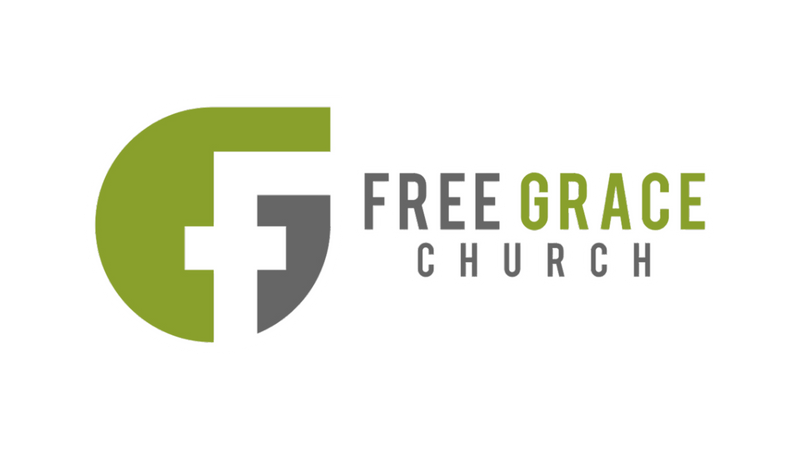Sin Is Crouching At The Door
/In Genesis chapter 4, Moses records the sad story of the children of Adam and Eve. This is the generation after the fall into sin. In many ways this is the pilot episode for the rest of the history of the world. Conflict, anger, lying, competition, envy, and bloodshed have become the new normal for humanity.
From one perspective, the ugliness of Genesis 4 is really a cautionary tale about an unheeded warning. After Cain offer’s an unacceptable sacrifice to God, he becomes very angry, to the extent his whole appearance is affected. “His face falls.” God offers a rebuke to Cain and warns him in the following words: “Why are you angry, and why has your face fallen? If you do well, will you not be accepted? And if you do not do well, sin is crouching at the door. Its desire is contrary to you, but you must rule over it.” (Genesis 4:6-7, ESV)
This is the first time the word “sin” is mentioned in the Bible. And much of this account is about the power of sin to grow, overcome, and completely dominate a person. Cain rejects God’s words, and the rest of the passage is a revelation of what it looks like to be overcome with sin. Anger ripens to premeditated murder of a brother. God describes sin like a deadly predator, a lion crouching just before it takes its prey by the throat and dominates it. Sin wants to take control.
Cain needed this warning, and so do we, because this is not how we view sin. We downplay our own faults. We believe that we are in control. That we have mastery over the dark impulses of our hearts. We see our sin as a little kitten that is easy to handle, rather than a man-eater.
This portrait of sin is taken up repeatedly through the Bible. Sin is compared to weeds that grow and choke the power of God’s word in our souls (Matt 13:22). Sin is compared to a little spark that can start a whole forest fire (James 3:5). It is compared to deadly gangrene that can spread through a whole church (2 Tim 2:17). And frequently sin is compared to leaven, which is similar to our modern understanding of yeast. The smallest pinch of yeast will take over a lump of dough as big as the world, given enough time. “A little leaven, leavens the whole lump.” (I Cor. 5:6, Gal 5:9)
This is one of the lessons of the feast of unleavened bread in the Old Testament. The Jews were to clean out their houses and cupboards of all the yeast/leaven. This is symbolic of making a thorough dealing with the sin in our lives. Paul uses this metaphor in I Cor. 5:7 as a way to instruct us in dealing with sin.
Sin grows, consumes, dominates and destroys. Here are a few ways to apply this idea:
- Do not underestimate sin’s power in your life. It is deceitful. Sometimes we don’t see the way sin is working in our lives. Sometimes we don’t want to see it. When you see one cockroach, assume there is a colony in waiting.
- Do not tolerate sin in your own life. There is an important discussion to have on what this means in our dealings with other people in the world. That is for a different place. Suffice it to say that we cannot escape the sins of other people unless we leave the world entirely (I Cor. 5:9-10). But we must not tolerate any known sin in our lives. Don’t make excuses for it. Don’t rationalize it. Don’t minimize it. Don’t blame others for it. Don’t make peace with it. “If I had cherished iniquity in my heart, the Lord would not have listened.” (Psalm 66:18) The word for cherish comes from the root word “to look after,” and has the idea of looking on something with pleasure. We do this when we treat sin as a welcome friend rather than a hostile enemy. This is a helpful metaphor because it connects well with the idea of repentance, which literally means “a change of mind.” Obviously repentance is more than changing our mind, but it starts there. The first step to turning away from sin begins in the way we view it. We must see it the way God sees it. We must see it as an enemy, as cancer. We must starve it. We must work to evict it. We must kill it (Romans 8:13). This is why Paul says, “But put on the Lord Jesus Christ, and make no provision for the flesh, to gratify its desires.” (Romans 13:14)
- Attack sin when it is small and you are first aware of it. Small weeds are easier to pull than big ones. I had a friend go in for colon cancer screening 10 years before it is normally recommended. She did this because of her family history. One physician didn’t think it was necessary. But when they looked, they found a small tumor that she was able to have treated. The doctor that found the tumor said it probably would have slowly grown without being noticed for 10 years or so until it had done a lot of damage and spread. The delay could have been fatal. We know that early detection and treatment works for cancer, the same is true for sin. Look with alarm at small patterns of ingratitude, anger, bitterness, greed, etc.
- Ask God to search your heart for hidden faults. In Psalm 139 David prayed, “Search me, O God, and know my heart! Try me and know my thoughts! And see if there be any grievous way in me, and lead me in the way everlasting!” In Psalm 19 he prayed, “Who can discern his errors? Declare me innocent from hidden faults. Keep back your servant also from presumptuous sins; let them not have dominion over me! Then I shall be blameless, and innocent of great transgression.” Obviously these ideas are not only in the New Testament. We also need the help of other christians in this regard: “But exhort one another every day, as long as it is called “today,” that none of you may be hardened by the deceitfulness of sin.” (Hebrews 3:13)
- You cannot do this on your own. You need divine help. The good news is this: Jesus helps us in our weakness. We don’t have enough wisdom, discipline, or strength to manage all of this. Our battle against sin is fought in two ways. There is the conscious intentional battle that we fight, and then there is the part that is unconscious to us. We must work to search our hearts and turn away from sin. But the Holy Spirit works in us continually to help us grow. I John 1:7 expresses this in the context of dealing with the reality of sin in our lives: “If we walk in the light, as he is in the light, we have fellowship with one another, and the blood of Jesus his Son cleanses us from all sin.” The tense of the word “cleanse” is present, active, indicative. It could be translated “the blood of Jesus his son IS CLEANSING US from all sin.” When does this happen? As we walk in the light. The ongoing work of growth and cleansing happens as we walk with him and one another. A farm worker covered in dirt from a day’s labor can get clean by taking a shower, but much of the dirt gets washed off as he spends his day working around the irrigation sprinklers. That is how it happens with us. As we trust and walk with Christ he is at work to cleanse us and overthrow sin in our lives.







